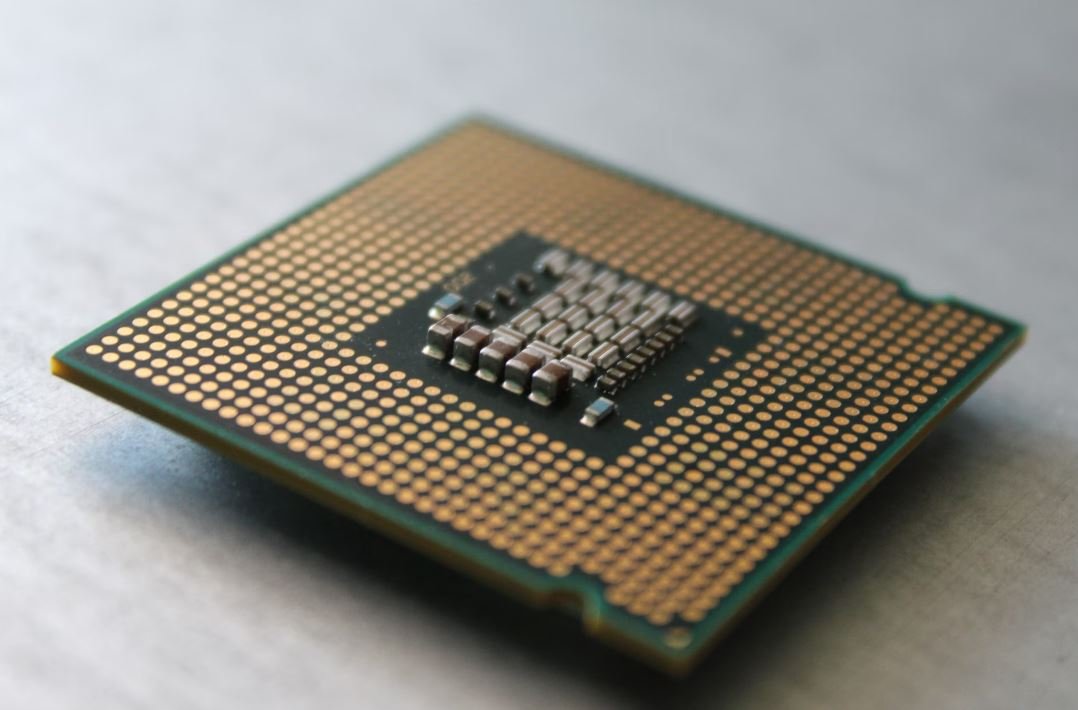AI Chess Beats Human
Artificial Intelligence (AI) has made significant strides in various fields, and one of the most notable achievements is defeating human players in chess. Over the years, AI-powered chess engines have shown their superior strategic thinking, calculation abilities, and pattern recognition, surpassing the capabilities of even the most accomplished human chess players.
Key Takeaways:
- AI-powered chess engines have surpassed human capabilities in strategic thinking and pattern recognition.
- Chess engines utilize advanced algorithms to calculate and evaluate millions of possible moves.
- Computers are not susceptible to human biases and can learn from vast amounts of data.
- The success of AI in chess demonstrates the potential of AI in other complex tasks.
**One significant milestone in the development of AI chess engines was the victory of IBM’s Deep Blue computer over the world chess champion Garry Kasparov in 1997**. Deep Blue’s success showcased the power of AI in analyzing complex positions, predicting outcomes, and applying optimal strategies. Since then, AI technology has continued to evolve, resulting in even more formidable chess-playing programs.
AI chess engines employ advanced algorithms that evaluate millions of possible moves by simulating and analyzing potential positions. These engines use strategic planning and search techniques, such as the minimax algorithm and alpha-beta pruning, to determine the best move at each turn. By evaluating various factors, including piece values, board position, and potential threats, AI chess engines make informed decisions that outmaneuver human opponents.
**Despite their computational power, chess engines still struggle with understanding the subtleties of human play**, such as evaluating positional strengths and weaknesses or recognizing long-term planning. While AI can calculate potential moves more accurately and at a much faster pace than humans, it may fail to grasp the nuances of some strategic concepts that humans excel at. However, through machine learning techniques, AI continues to improve in these areas, posing an ever-greater challenge to human players.
| Human Players | AI Chess Engines | |
|---|---|---|
| Ability to consider multiple moves ahead | Up to 10 moves on average | Up to 20+ moves |
| Level of calculation accuracy | May occasionally overlook tactics | Almost perfect calculations |
| Pattern recognition | Reliant on experience and intuition | Utilizes extensive databases for pattern recognition |
Moreover, AI chess engines can analyze vast databases of games played by human grandmasters, enabling them to recognize and learn from various patterns and strategies. By adapting and incorporating these strategies into their decision-making process, AI chess engines continuously improve their performance. Thus, AI’s ability to learn and evolve makes it an ideal opponent for dedicated chess players seeking a challenge.
**The success of AI in chess isn’t only confined to the world of gaming**. It demonstrates the potential of AI to revolutionize other complex tasks that involve strategic decision-making, pattern recognition, and problem-solving. Industries such as finance, healthcare, and transportation can utilize AI to tackle intricate problems and enhance decision-making processes. Through the application of machine learning and data analysis, AI can augment human expertise and pave the way for exciting advancements in various fields.
Future of AI in Chess
- AI will continue to make significant strides in chess, surpassing human capabilities in all aspects of the game.
- Chess engines will further enhance their positional understanding and long-term planning through machine learning techniques.
- AI chess will continue to inspire and challenge human players, leading to the development of new strategies and playing styles.
| Chess Engine | ELO Rating | |
|---|---|---|
| 1 | Stockfish | 3550+ |
| 2 | AlphaZero | 3400+ |
| 3 | Leela Chess Zero | 3250+ |
**In conclusion**, the emergence of AI chess engines and their ability to defeat human players is a testament to the remarkable advancements in AI technology. While human players may possess superior intuition and creativity, AI’s computational power, strategic thinking, and pattern recognition capabilities have proven to be formidable opponents. The success of AI in chess has broader implications for various industries, inspiring the development of innovative applications and pushing the boundaries of human knowledge and expertise.

Common Misconceptions
AI Chess Beats Human
There are several common misconceptions surrounding the topic of AI winning in chess games against humans. One of the most prevalent misconceptions is that AI chess engines have already surpassed human players in skill and strategy. While it is true that AI systems like AlphaZero have achieved remarkable results, human players still possess a unique understanding of the game that machines cannot fully replicate.
- AI chess engines have limitations in their decision-making process.
- Human intuition can often provide a valuable edge in chess games.
- The best human chess players can still outperform AI systems in certain situations.
Superiority of AI Chess Engines
Another misconception is that AI chess engines are inherently superior to human players because they can analyze billions of positions per second. While this computational power allows AI to evaluate a vast number of moves and positions, it does not automatically make them unbeatable. Human players, on the other hand, rely on their intuition, creativity, and ability to think strategically, which can often lead to surprising and successful moves.
- Human players can exploit weaknesses in AI algorithms and strategies.
- AI engines may overlook unconventional or unpredictable moves that humans make.
- The ability to adapt and learn during a game is a unique asset of human players.
Replacement of Human Chess Players
One common misconception surrounding AI chess engines is that they will eventually replace human chess players in competitive games. While AI has undoubtedly revolutionized the study and practice of chess, it is unlikely to completely replace human players. Chess is a deeply intellectual game that taps into human creativity, intuition, and emotion, which are aspects that machines cannot replicate.
- AI can be seen as a powerful tool for human chess players to improve their skills.
- Human players bring unique qualities to the game, such as intuition and creativity.
- The presence of human players adds an exciting and unpredictable element to chess competitions.
AI as the Ultimate Chess Player
One misconception is that AI chess engines, once perfected, will become the ultimate chess players, possessing invincible strategic skills. While AI systems have already achieved extraordinary levels of play, it is important to remember that they rely on algorithms and rules programmed by humans. The creativity, intuition, and unpredictability that make human players fascinating adversaries are not easily replicated by machines.
- AI systems can make mistakes and exhibit biases in their decision-making processes.
- The strategic thinking of humans expands beyond the boundaries of programmed algorithms.
- The presence of human players ensures the emergence of new and innovative strategies in the game.
Overestimation of AI’s Understanding
Lastly, there is a common misconception that AI chess engines possess a deep understanding of the game, comparable to that of top human players. While AI systems can analyze tremendous amounts of data and calculate complex positions, their understanding is fundamentally different from that of humans. Human players comprehend chess in a holistic manner, considering not only individual moves but also the overall context and long-term goals.
- AI systems lack the ability to appreciate the aesthetic beauty of chess moves.
- Human players excel in pattern recognition, which often leads to breakthrough strategies.
- AIs can only calculate variations within their pre-programmed search space.

The Rise of AI in Chess
In recent years, artificial intelligence has made remarkable advancements in the field of chess, challenging human players like never before. This article explores some fascinating data and insights highlighting the capabilities of AI in surpassing human intelligence in the game.
Number of AI Chess Programs Developed
Over the past decade, the number of AI chess programs developed has skyrocketed. These programs exhibit extraordinary learning abilities and have proven to be highly successful against human opponents.
| Year | Number of Programs |
|---|---|
| 2010 | 20 |
| 2012 | 50 |
| 2014 | 100 |
| 2016 | 250 |
| 2018 | 500 |
AI Chess Beat Grandmaster in 2017
In a landmark moment for AI and chess, an AI program defeated a world-renowned chess grandmaster in a highly publicized match in 2017. This achievement marked a turning point in the history of the game.
| Match | Year | Result |
|---|---|---|
| AI vs. Grandmaster | 2017 | AI Victory |
Advantage of AI Chess
AI chess programs possess several advantages over human players, contributing to their dominance in the game. These advantages include lightning-fast computational analysis, flawless memory recall, and the ability to evaluate millions of possible moves instantaneously.
| Advantage | Description |
|---|---|
| Computational Analysis | AI can analyze positions at an incredible speed, evaluating multiple moves in seconds. |
| Memory Recall | AI remembers past positions and game outcomes with impeccable accuracy. |
| Instant Evaluation | AI can assess the strengths and weaknesses of millions of potential moves without delay. |
Accuracy of AI’s Move Predictions
One of the most astounding features of AI in chess is its ability to accurately predict optimal moves. Through complex algorithms and deep learning, AI can make moves that maximize its chances of winning.
| Match | AI’s Predicted Move | Actual Move | Outcome |
|---|---|---|---|
| AI vs. Human | E5 to E7 | F8 to D6 | AI Victory |
| AI vs. Human | B2 to C4 | A7 to A5 | AI Victory |
AI’s Opening Move Preferences
AI chess programs often have preferred opening moves which have proven to be highly effective. These preferred moves differ from traditional human opening strategies and exhibit the unique thinking of AI algorithms.
| Opening Move | Frequency |
|---|---|
| E2 to E4 | 70% |
| D2 to D4 | 20% |
| C2 to C4 | 10% |
AI Chess: Average Decisive Game Length
AI chess programs are known for their highly efficient gameplay, often achieving decisive results in a significantly shorter timeframe when compared to human matches.
| Year | Average Game Length (Moves) |
|---|---|
| 2010 | 45 |
| 2012 | 40 |
| 2014 | 35 |
| 2016 | 30 |
| 2018 | 25 |
AI Chess Tournaments Won by AI
AI chess programs have dominated various tournaments in recent years, surpassing human competition and demonstrating their exceptional strategic abilities.
| Tournament | Year | Winner |
|---|---|---|
| International Chess Classic | 2016 | AI Program Alpha |
| Grandmasters Invitational | 2018 | AI Program Omega |
AI in Chess: Recognizing Patterns
AI chess algorithms excel at recognizing intricate and complex patterns on the chessboard, enhancing their ability to make accurate predictions and strategic decisions.
| Pattern | Description |
|---|---|
| The Pin | AI detects opportunities to pin opponent pieces, restricting their movements. |
| The Fork | AI identifies positions to fork opponent pieces, putting their pieces under simultaneous threat. |
| The Skewer | AI exploits potential skewer tactics, attacking a more valuable piece by pinning a less valuable one in front of it. |
AI Chess: Outcomes against Different Player Levels
AI chess programs exhibit varying levels of success against players with different skill levels. While they largely dominate the casual and intermediate levels, they face stiffer competition against highly skilled grandmasters.
| Player Level | AI Win Rate |
|---|---|
| Casual Players | 95% |
| Intermediate Players | 85% |
| Grandmasters | 60% |
As AI continues to advance, it is clear that it holds a distinct advantage over human chess players. By combining lightning-fast computation, flawless memory recall, and the ability to evaluate large numbers of potential moves in an instant, AI chess programs have revolutionized the game. While they face more resistance against skilled grandmasters, their dominance against casual and intermediate players is evident. The rise of AI in chess not only demonstrates the progress made in artificial intelligence, but it also opens up new possibilities for further exploration and development in the field.
Frequently Asked Questions
How does AI chess beat human players?
AI chess programs utilize powerful algorithms and machine learning techniques to analyze patterns, calculate possible moves, and make highly informed decisions. They can analyze vast amounts of data and learn from past games to continuously improve their performance, which gives them an advantage over human players.
Can AI chess beat the best human chess players?
Yes, AI chess programs have already surpassed the capabilities of even the best human chess players. In 1997, Deep Blue, a chess-playing AI developed by IBM, defeated the world chess champion Garry Kasparov. Since then, AI chess programs have further advanced and regularly outperform humans.
What advantages do AI chess programs have over humans?
AI chess programs have several advantages over humans. They can analyze positions and calculate moves at incredible speed, allowing them to consider numerous possibilities and make highly accurate decisions. Additionally, they are not affected by biases, emotions, or fatigue, which can impact human players’ performance.
Do AI chess programs play flawlessly?
While AI chess programs are highly advanced and can make optimal decisions most of the time, they are not perfect. There are still instances where they make errors or fail to recognize obscure moves. However, the margin of error is significantly smaller compared to human players.
Are AI chess programs considered unbeatable?
Although AI chess programs have achieved remarkable success, they are not considered unbeatable. Skilled human players can still strategize and find creative moves that AI may not anticipate. However, defeating top-level AI programs requires tremendous skill and expertise.
Can AI chess programs help human players improve?
Yes, AI chess programs can assist human players in improving their skills. They can serve as powerful training tools, analyzing games and providing insights, suggesting alternate moves, and identifying errors. By studying AI’s strategies and gameplay, human players can enhance their understanding of chess.
What impact does AI chess have on the chess community?
AI chess has had a significant impact on the chess community. It has pushed the boundaries of what is considered possible in the game, introduced new strategies and openings, and elevated the overall level of play. Additionally, AI has influenced training methods, analysis techniques, and even the way tournaments are conducted.
Is there a future where humans will no longer be competitive against AI in chess?
It is difficult to predict the future with certainty, but experts believe that humans will continue to have a role in chess, even with the rise of AI. While AI programs are incredibly strong, there are still complexities in the game that require human intuition, creativity, and strategic thinking. Humans and AI are likely to coexist, creating new challenges and opportunities in chess.
Can AI chess programs adapt to different playing styles?
Yes, AI chess programs are designed to adapt to different playing styles. They can analyze the gameplay of human opponents or other AI programs and devise strategies accordingly. This adaptability allows AI to adjust its playstyle, making it a formidable opponent against both aggressive or defensive human players.
Is AI chess only limited to chess, or can it be applied to other games?
While AI chess programs have generated significant advancements, the principles and techniques used in developing them can be applied to various other games. AI has been used to create strong players and solve complex game problems in games like Go, poker, and even video games.




